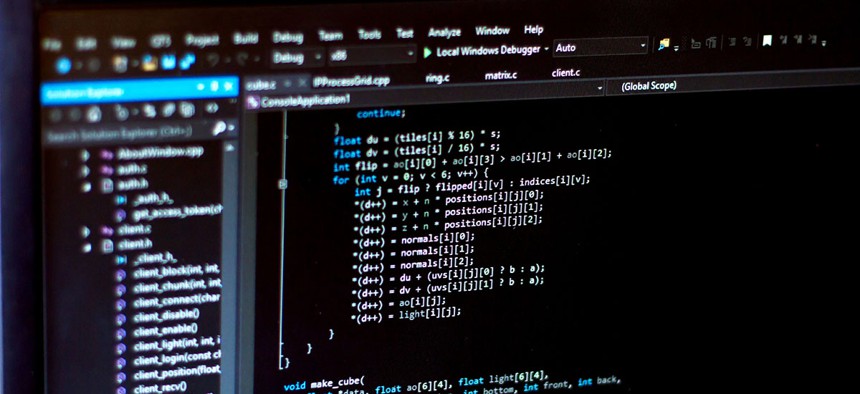GitHub Now Lets its Workers Keep the IP When They Use Company Resources for Personal Projects

Monstar Studio/Shutterstock.com
If it’s on company time, it’s the company’s dime. That’s the usual rule in the tech industry.
If it’s on company time, it’s the company’s dime. That’s the usual rule in the tech industry—that if employees use company resources to work on projects unrelated to their jobs, their employer can claim ownership of any intellectual property they create.
But GitHub is throwing that out the window. Today the code-sharing platform announced a new policy, the Balanced Employee IP Agreement. This allows its employees to use company equipment to work on personal projects in their free time, which can occur during work hours, without fear of being sued for the IP. As long as the work isn’t related to GitHub’s own “existing or prospective” products and services, the employee owns it.
Like all things related to tech IP, employee agreements are a contentious issue. In some states, it’s not uncommon for contracts to give companies full ownership of all work employees produce during their tenure, and sometimes even before and after their tenure, regardless of when or how they produce it. These restrictions have led to several horror stories, like the case of Alcatel vs. Evan Brown.
Evan Brown, a programmer who worked for Alcatel in Texas in the mid-1990s, had spent 20 years trying to create an algorithm that would allow old software to work with new hardware. While he was on a weekend drive in 1997, a solution suddenly came to him. He brought the solution to the company, offering to share any profits the technology might produce.
But rather than negotiating a deal, Alcatel fired Brown and sued him for ownership of the idea. After a 7-year-long court battle, he lost and was forced to spend three months at the company’s offices, without pay, writing out the code to implement his solution.
According to a 2014 paper by the law school at the University of San Diego, the agreement Brown had signed with Alcatel gave the company “full legal right, title and interest” of any work he produced while employed there. He also had to turn over “all information concerning any discoveries or inventions he made or conceived while in its employ which related to the nature of the company’s business.”
That was in Texas, but such contracts are largely unenforceable in California, where state laws allow employees to own the work they produce on personal equipment and time. As GitHub points out in its policy announcement, such laws (which also nullify most aspects of non-disclosure agreements) are often cited as a big reason why Silicon Valley has become the center of the tech industry.
But even relaxed rules that simply draw a line between company resources and personal resources can create some confusion in the current tech landscape, where it’s common for employees to have several laptops and to work irregular hours.
This inherent culture of flexibility has already caused some companies to become more flexible with employee IP as well, said Julio Avalos, GitHub’s general counsel and chief business officer, but the legal documentation “hasn’t caught up to that new reality.”
As such, GitHub’s new agreement doesn’t explicitly state employees can use company time to develop their own IP, but does say employees can own any work they produce in their “free time.” According to Mike Linksvayer, head of open source policy at GitHub, that can include downtime during work hours. As long as the work doesn’t step on the company’s toes, Linksvayer said, “we don’t want to restrain creativity if it’s not something we’re interested in.”
GitHub hopes BEIPA will become a new industry standard, and the industry seems ready for a change. Several developers we spoke with who work in and around Silicon Valley, all of whom asked to remain anonymous, expressed some frustration with IP rules that seem antiquated. One developer had just accepted a position at another company, and said it was largely because his current employer’s IP agreement was too restrictive.
“It makes it unrealistic to pursue any side gigs even tangentially related to my passions,” he said. “That’s ultimately why I’m leaving for a place that gets it a little more.”
Another developer said use of company equipment isn’t so much of an issue.
“We’re paid enough to buy our own hardware,” he said. “The tricky bit is understanding what’s ‘on company time’ and what the company can claim is substantially similar to our regular work. Understanding that requires being a lawyer.”
One developer sounded a note of a caution. IP agreements “do have the benefit of creating a clear delineation of rights,” he wrote in an email. “I’m not sure that removing these restrictions would actually help the individual. The line would blur between the two and the company (with the lawyers) would typically beat up on the individual. I guess a benefit of the existing agreements is that they are efficient in that they are clear and easy for folks to comply with.”
Appropriately for a code-sharing site, GitHub is open-sourcing BEIPA so others can suggest improvements.
“By making the agreement an open source project, we hope to lower barriers to and learn more about innovation in this space,” the company said in its announcement. “Pull requests are welcome.” If nothing else, this will surely prove to be an interesting legal experiment.


